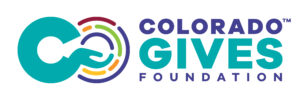Advocacy Talking Points for Colorado Humanities
Colorado Humanities works in communities throughout the state, fostering the understanding of history and culture, promoting literacy, informed civic dialog and community engagement. Our humanities programs, such as Motheread/Fatheread Colorado, Veterans Writing Workshops, and Young Chautauqua provide students, teachers, and citizens at large with access to learning opportunities and skill development. An enhanced quality of community life is generated by these and other of our programs, such as Black History Live, Changing the Legacy of Race & Ethnicity, Colorado Center for the Book programs for reading and writing, Latinx Heritage Live, and living history programs.
With the COVID crisis Colorado Humanities turned to digital programming in 2020, opening
new possibilities. These included online Colorado Book Awards finalist readings and the awards celebration, Motheread/Fatheread Colorado training institute, Colorado Veterans Writing workshops, and the Changing the Legacy of Race & Ethnicity program series.
Colorado Humanities responded to the challenge to award 68 grants totaling nearly $500,000 in Coronavirus Aid, Relief, and Economic Security (CARES) Act funding from the National Endowment for the Humanities.
Colorado Humanities is run by a volunteer board composed of education, community, business and policy leaders from all across Colorado, who provide the expertise and relationships needed for effective leadership of a nonprofit organization. Our board monitors our mission, provides fiscal oversight, approves programs, assists our fundraising and makes personal financial contributions, and participates in conferences and regular board meetings.
We believe that humanities education provides the tools that help people examine and make sense of our interrelated human experience, ask fundamental questions of purpose and meaning, and connect on profound levels as individuals, social groups, large and small communities, and nations.
Colorado Humanities’ mission is to inspire and empower the exploration of ideas and appreciation of Colorado’s diverse cultural heritage. We have developed and every year implement educational, school- and community-based, educational programs of humanities content that engage diverse populations, help preK-12 students – especially youth at risk – improve academic achievement, and encourage community engagement.
We have created more than 90 unique educational initiatives for Colorado in our 46-year history and offer our programs at very little or no cost to participants.
Colorado Humanities reaches rural, suburban and urban communities in every Congressional district each year, and we extend our reach by partnering with hundreds of Colorado organizations, including museums and libraries, K-12 schools, colleges and universities, social service agencies, corporations, and local businesses, and broadcast media. We build the capacity of our program partners to best serve their communities, and these extensive program partnerships enable us to serve over 340,000 people as program partners, participants, and audiences annually.
Colorado Humanities programs reach students, teachers, veterans, seniors, children and youth, professionals, laborers, English-learners, adults working towards literacy, and thousands of people seeking to enhance their understanding of history and local culture.
We are a 501(c)(3) nonprofit in long-term partnerships with several national organizations including the Library of Congress, Motheread, Inc., National Endowment for the Humanities, and the Smithsonian Institution. In 2004, Colorado Center for the Book merged with Colorado Humanities to become our program department for reading and writing, and we expanded our mission to include fostering throughout Colorado the love of reading and books. Every year, more than 250 volunteers give more than 7,000 hours of assistance, and we receive nearly $500,000 in donated goods and services.
We devote the majority of our annual budget directly to programs.
Colorado Humanities receives core funding from the National Endowment for the Humanities (NEH) through the Federal/State Partnership, which helps NEH realize its two primary goals: advancing knowledge and understanding of the humanities; and increasing public awareness of, access to, and support for the humanities in the United States. This partnership makes humanities education and lifelong learning readily available at the local level, uniquely tailored to local interests and needs, and drawing upon local resources and experiences. This core funding from NEH must be matched dollar for dollar by private donations, which have been essential in our delivery of outstanding programs in Colorado, tailored to local and regional interest and reaching geographical areas and groups that would otherwise not have access to such programs.
Talking Points for NEH-Supported State Humanities Councils
The 56 state humanities councils play a key role in communities throughout the nation, fostering the understanding of history and culture, promoting literacy and employability, and boosting local economies. They help us learn about our communities and share our stories and experiences.
Local economies benefit from council programs that (a) provide students, teachers and citizens at large with access to learning opportunities and skill development, (b) contribute to quality of life in communities, and (c) spur economic activity through festivals, events, and cultural tourism. State humanities councils are 501(c)3 nonprofits organized in each state. They are run by local boards composed of community, business and policy leaders, who are responsible for determining the programming in their individual states.
Councils reach over 5,300 communities – rural, suburban, and urban – in nearly every Congressional district each year. Councils extend their reach by partnering with over 9,200 organizations each year, including museums and libraries, K-12 schools and universities, veterans agencies, churches and social service agencies, corporations and local businesses, chambers of commerce and state tourism offices, and radio and television stations. These extensive partnerships enable councils to annually serve more than 44 million people through in-person events and 120 million through virtual events.
Council programs reach students, teachers, veterans, seniors, youth, underrepresented groups, adults working towards literacy, citizens seeking to enhance their understanding of history and local culture, those navigating medical issues, and the place-bound.
The FY 2020 funding for the NEH was $162.250 million, with $50.028 million for the Federal/State Partnership, which distributes funding to the state humanities councils.


